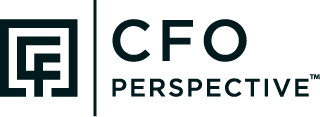The mission of the United States Small Business Administration (“SBA”) is to help Americans start, grow, and build resilient businesses. Small businesses can be at a disadvantage compared to larger businesses when trying to obtain access to capital and credit.
The Small Business Administration (SBA) administers several programs to support small businesses. They are best known for programs designed to encourage lenders to provide loans to small businesses that might not otherwise obtain financing on reasonable terms and conditions.
Some call the SBA the “lender of last resort.” However, SBA loans are useful to many borrowers. The SBA also has many other resources that can help all small businesses.
Why the SBA was Formed and Continues Today
The United States government enacted a series of laws and created a series of corporations to help American small businesses during the Great Depression and World War II. This led to the formation of the SBA in 1953 with the mission to “aid, counsel, assist and protect, insofar as is possible, the interests of small business concerns.” It was also charged with ensuring that small businesses earn a “fair proportion” of government contracts and sales of surplus property.
SBA’s programs now include help with management, as well as financial and federal contract procurement. SBA provides specialized outreach to women, minorities, and armed forces veterans. SBA loans are available to victims of natural disasters. The agency also offers specialized advice and support in international trade.
Over the years, it has provided a series of programs to serve the evolving challenges to small businesses and the U.S. economy. Two of the largest and most visible programs were the Paycheck Protection Program (PPP) and Economic Injury Disaster Loan (EIDL) programs enacted during the COVID pandemic. The support structure of the SBA and SBA lenders allowed for government support to quickly be injected into the economy (well, as quickly as any massive government program can be implemented).
The SBA’s two largest loan programs are the 7(a) and 504 programs. The SBA’s goal for these programs is that they are self-funding, so they require no subsidy from the Federal Government. The main source of revenue for these loan programs is guarantee fees collected on the loans.
The Impact of SBA Today
In fiscal year 2021, the SBA approved 31,856 loans totaling $27 billion in its 7(a) loan program, one of its largest loan programs. The 7(a) program had $104 billion in unpaid principal loan balance. In FY2021, the average approved 7(a) loan amount was $704,581, and about 10% of all 7(a) loans exceeded $2 million.
In the 504 program, the SBA issues debentures (i.e., bonds) to fund up to 40% of the amount of 504 project costs. The borrower and a third-party lender fund the other 60%. In fiscal year 2021, the SBA issued $9 billion of debentures for 10,000 loans. As of March 2022, the unpaid principal balance of 504 loans was $32 billion.
The Urban Institute surveyed 7(a) loan participants. They found that 68% of borrowers rated their satisfaction with their 7(a) loan as good or excellent. 90% of respondents reported that the loan was very important (62%) or somewhat important (28%) to the success of their business. The Urban Institute also confirmed that loans under the 7(a) and 504 programs were more likely to be made to minority-owned, women-owned, and start-up businesses as compared to conventional small business loans.
SBA Services Other Than Loan Programs
Below is a short summary of some services the SBA provides in addition to the loan programs. More can be found about these services at the SBA website at sba.gov.
Access to Capital
The SBA provides an array of financing for small businesses. Options range from the smallest needs in microlending to debt and equity investment capital. The largest and most versatile of these is the 7(a) program. There are also SBA funding programs for investment capital, disaster assistance, surety bonds, and grants.
Entrepreneurial development
The SBA provides free counseling and low-cost training to new entrepreneurs and existing small businesses. The best-known of these is the SCORE business mentoring program. SCORE mentors, who are experts in entrepreneurship, provide free guidance to small businesses. SCORE also has an online library of training and resources. Apart from SCORE, the SBA site is full of excellent business education resources.
Government contracting
The SBA sets goals with other federal departments and agencies to award 23% in prime contract dollars to small businesses.
Advocacy
The SBA supports the nation’s small business community by reviewing Congressional legislation and testifying on behalf of small businesses. It assesses the impact of regulatory burden on small businesses.
SBA Resource Partners
SBA resource partners don’t provide funding but provide valuable information. You can find a list of your local partners via the SBA’s Local Assistance Locator. They include:
Small Business Development Centers (SBDC)
Small Business Development Centers provide counseling and training to small businesses. They work with the SBA to develop and provide informational tools to support business start-ups and existing business expansion.
SCORE business mentoring
SCORE is the nation’s largest network of expert business mentors. They are dedicated to helping small businesses plan, launch, manage and grow. SCORE fosters vibrant small business communities through mentoring and educational workshops.
Veterans Business Outreach Center (VBOC) program
The Veterans Business Outreach Center program offers resources to veterans who are interested in starting or growing a small business.
Women’s Business Centers
Women’s Business Centers assist women in starting and growing small businesses.
Check Out the Resources on the SBA Website
If you are a small business owner, entrepreneur, or advise small businesses, check out the resources on the SBA site. You’ll find many useful resources for your company or your clients’ companies. They do a great job supporting small businesses.
You can also check out my SBA Loans course for details about SBA loan programs.
For more info, check out these topics pages:
